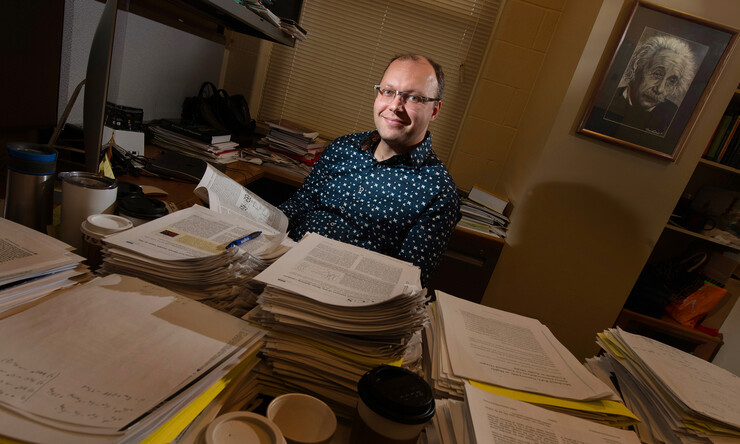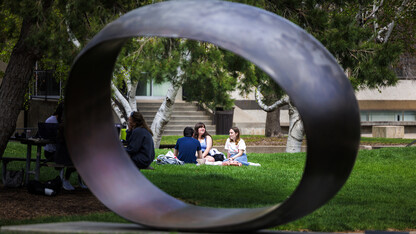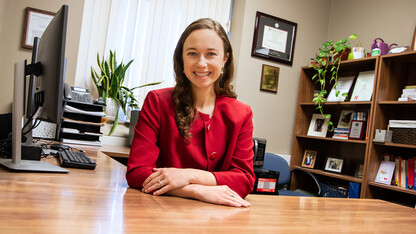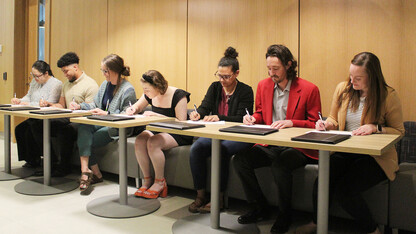· 3 min read
Alexandrov using CAREER award to study liquids’ effects on nanomaterials
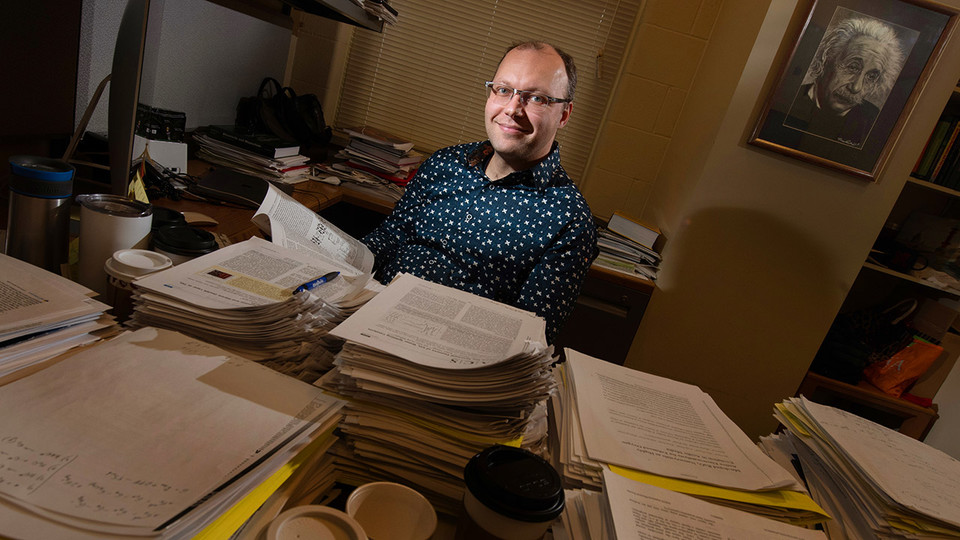
Dissolution of nanomaterials in water — in other words, how they break down when introduced to liquid — is one of the most fundamental processes in chemistry. Depending on the application, that dissolution can be a positive or negative feature, making it crucial to understand how the process can be controlled.
Vitaly Alexandrov, assistant professor of chemical and biomolecular engineering at the University of Nebraska–Lincoln, has received a $520,244 Early Career Development Program award from the National Science Foundation to advance basic understanding of how nanocrystals dissolve in aqueous environments. This could help scientists develop nanomaterials with better stability and more controllable chemical activity.
Nanomaterials have widespread applications, including medicine, aerospace, batteries, magnets, televisions, computers, weapons and insulation.
“It’s well-known that (nanomaterials’) dissolution may play both beneficial and detrimental roles,” Alexandrov said.
Dissolution can aid in processing and recycling materials, but it also causes corrosion and degradation of alloys and photo-electrocatalysts and decomposition of hybrid organic-inorganic solar cells and pharmaceuticals. Corrosion and decomposition of these materials — ranging from batteries to computer parts — can limit their effectiveness and raise environmental concerns.
“Despite years of fundamental research, our current understanding of dissolution mechanisms at the atomic level and factors controlling the process remains obscure,” said Alexandrov, who conducts his research through the Nebraska Center for Materials and Nanoscience.
That’s because numerous factors affect how nanomaterials dissolve in water, including temperature, solution pH and chemistry, material size, morphology and structural defects. It’s also proven difficult to detect the short-lived reaction intermediates that can play a crucial role in the overall dissolution process.
Better understanding how nanomaterials dissolve will help scientists better process and recycle the materials, identify the ambient conditions that will enable them to drive dissolution along preferable paths, and aid in the design of materials less prone to dissolution.
Alexandrov will seek to establish pathways and rates of dissolution across several types of nanomaterials in trying to build a unified picture of the dissolution process. To do this, he will experiment with a series of materials from three classes — noble metal-based, transition metal-based and hybrid organic-inorganic perovskites — to come up with comparisons and generalizations.
“We want to not only advance the basic understanding of nanocrystal stability, but we also expect that the obtained results will have a cross-cutting impact on other disciplines,” he said.
That includes electrochemistry, corrosion science, catalysis and materials synthesis, and processing and recycling.
Alexandrov’s project also includes educational and outreach components. He will implement group learning strategies and a problem-solving instructional approach into Nebraska engineering curricula. He also plans to organize summer schools for high school students and science teachers, seeking to bring computational tools and thinking into high school curricula.
CAREER awards support pre-tenure faculty who exemplify the role of teacher-scholars through outstanding research, excellent education and the integration of education and research.
